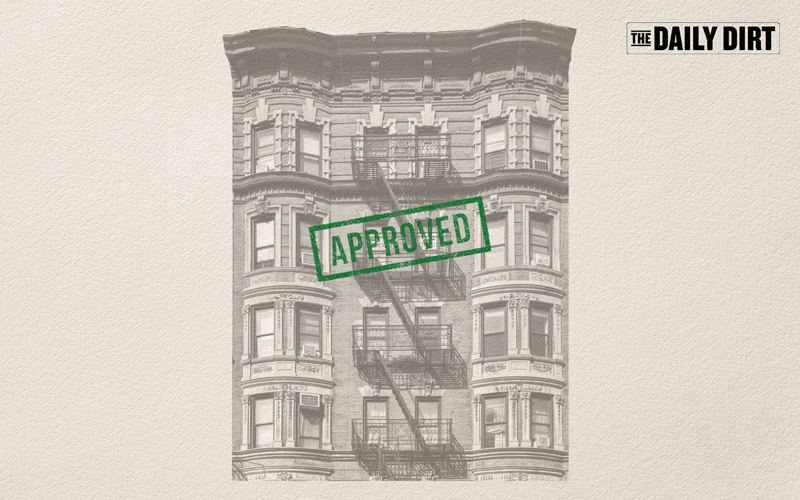Writing Wednesday’s edition of The Real World got me thinking.
The piece offered a political explanation for why any City Council members would limit criminal background checks on potential tenants and buyers, but not protect potential co-op buyers from discrimination by co-op board for things like skin color, race or sexual orientation.
In a nutshell, siding against landlords is politically easier than siding against co-op owners, who are active voters. Landlords did beat back the background-check bill previously, but only by getting tenants to testify against it.
Setting aside politics, though, l wondered what effect these policies would have.
It would make sense for co-op bill sponsor Pierina Sanchez to gather data proving Westchester’s 2021 transparency law has not increased litigation against co-ops by rejected buyers.
My gut tells me that co-ops would be more fair and consistent in evaluating buyers if they had to disclose the reasons for rejecting them, as Sanchez’s bill would require. This would result in fewer, not more, lawsuits.
Trusting your gut, however, is dangerous. It’s better to rely on data.
Consider background checks. Many states and localities enacted “ban the box” legislation to prevent landlords and employers from asking applicants if they had been convicted of a crime. Politicians’ assumption was that ex-cons would have an easier time finding quality housing and jobs, and thus would be less likely to re-offend. But a recent study found BTB laws have failed to improve employment prospects.
But did they actually cause harm? Some research found that when employers were forbidden from doing background checks, they rejected young, Black men even more frequently, because they are statistically more likely than other demographic groups to have criminal records. It was a classic example of the law of unintended consequences.
Even after this became known, localities continued to pass “ban the box” bills. This reminded me of the famous Groucho Marx line: “Who are you going to believe, me or your own eyes?”
Another Groucho Marx line is more relevant to co-op boards: “The secret of life is honest and fair dealing. If you can fake that, you’ve got it made.”
What we’re thinking about: How many rental projects of 100 or more units have been proposed in New York City since the state required higher construction wages for such developments to receive a property-tax break? Send your thoughts to eengquist@therealdeal.com.
A thing we’ve learned: New York City has a government publications portal with more than 50,000 records. A search for “vacant” yielded a series of delinquency notices noting HPD had missed annual deadlines for compiling a report on vacant, city-owned property demanded by Jumaane Williams’ Housing, Not Warehousing law (Local Law 30 of 2018). Perhaps the agency was focused on creating housing rather than counting it. In any case, after an inquiry from The Real Deal, HPD said the data have been updated and can be found here.
Elsewhere…
Before Covid, rent collection rates at Camber Property Group’s affordable housing developments were 95 percent to 97 percent. But with one important exception, they fell to the low 90s after the pandemic hit and have not recovered, according to Rick Gropper, who founded the firm in 2016 with Andrew Moelis.
“It’s a challenge that exists across the country,” Gropper said.
The exception was Section 8 housing, which makes up most of Camber’s portfolio. When tenants lose their jobs, Section 8 vouchers make up the difference, keeping residents current on rent. Collection rates at Camber’s Section 8 housing remained in the high 90s through the pandemic and have not fallen.
Stay tuned for more from TRD’s interview with Gropper.
TRD researcher Christian Bautista discovered that Choy Ling Lam has filed for bankruptcy on the 105 unsold units at the Allura Waterfront, a condominium at 109-09 15th Avenue in College Point, Queens. The filing valued the units at about $80 million. The Allura’s 2019 offering plan projected that its 134 units would fetch $146.2 million.
Its website shows only 16 of the available units, including one three-bedroom priced at $1.8 million and boasting a tiny $135-a-month property tax bill. The development qualified for 421a before the state legislature essentially eliminated condos from the tax abatement program.
The buyer of nine adjacent Thor Equities townhouses with ground-floor retail at 525 to 541 Atlantic Avenue in Boerum Hill, Brooklyn — a deal first reported by TRD’s Elizabeth Cryan — was Nicolas Berggruen, property records show. If Berggruen’s name sounds familiar, you might recall this TRD story in 2022 about the Paris-born, Los Angeles-based investor’s U.S. real estate buying spree.
Residential: The priciest residential sale Thursday was $9.25 million for a 3,300-square-foot co-op unit at 733 Park Avenue in Lenox Hill. Daniela Kunen of Douglas Elliman had the listing.
Commercial: The most expensive commercial closing of the day was $42 million for a 55,770-square-foot commercial building at 53 East 124th Street in East Harlem. New York College of Podiatric Medicine sold the five-story structure to Touro University.
New to the Market: The highest price for a residential property hitting the market was $9.5 million for a 6,691-square-foot townhouse at 161 East 74th Street on the Upper East Side. Victoria Vinokur of Brown Harris Stevens has the listing.
— Matthew Elo
